As a specialized company dedicated to eye health, Santen offers all employees its own original training, whereby they gain simulated experience of various levels of vision, including complete blindness with their vision completely blocked with a blindfold, as well as low vision. This training is intended as an opportunity for all employees to understand the importance of vision, and ideas implemented by people with various levels of vision to make their lives as comfortable as possible, thereby encouraging them to take action.
With Employees
Santen proceeds activities for raising public awareness of visual impairment.
All Santen employees think about vision
“Vision Experience Weeks” for all Santen employees
Santen hosted an internal event, “Vision Experience Weeks,” from October 9 through October 20 in 2023. This event, open to all Santen employees, is designed to encourage people to reconsider the importance of eye health through learning, experiencing and sharing “seeing and not seeing.” It also seeks to deepen their understanding of people with visual impairments at work and in the world at large while fostering compassion for others
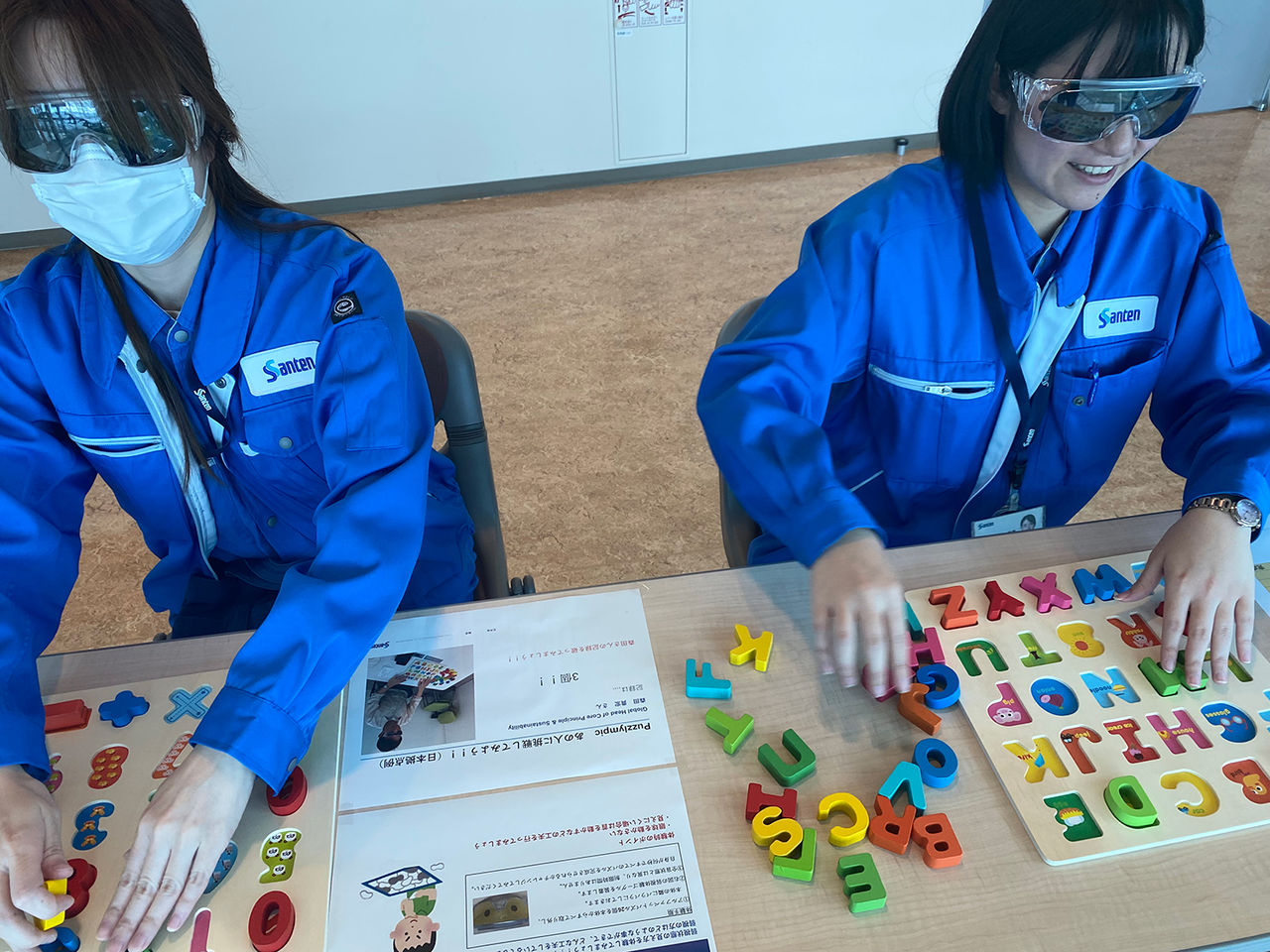
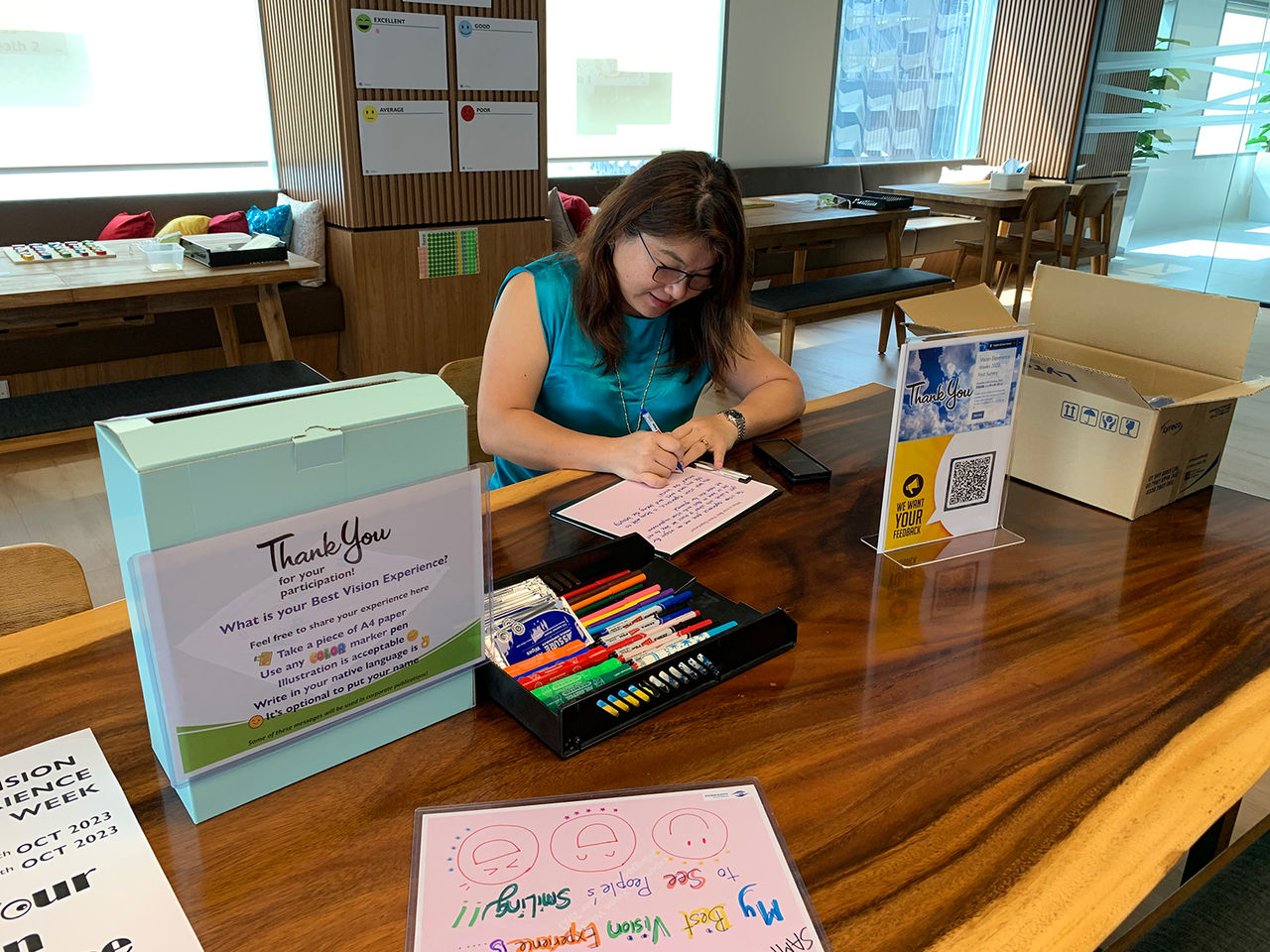
Think about vision around the world
Operating in over 60 countries and regions around the world, Santen offers the opportunity to think deeply about vision to people in each location. For example, induction training in China includes an important section designed to deepen new employees’ understanding of Santen’s vision: a session in which they are assigned to try walking while wearing a blindfold. In EMEA, an internship program has been provided for visually impaired students since 2021, providing not only the interns but also Santen employees with a valuable opportunity for learning.
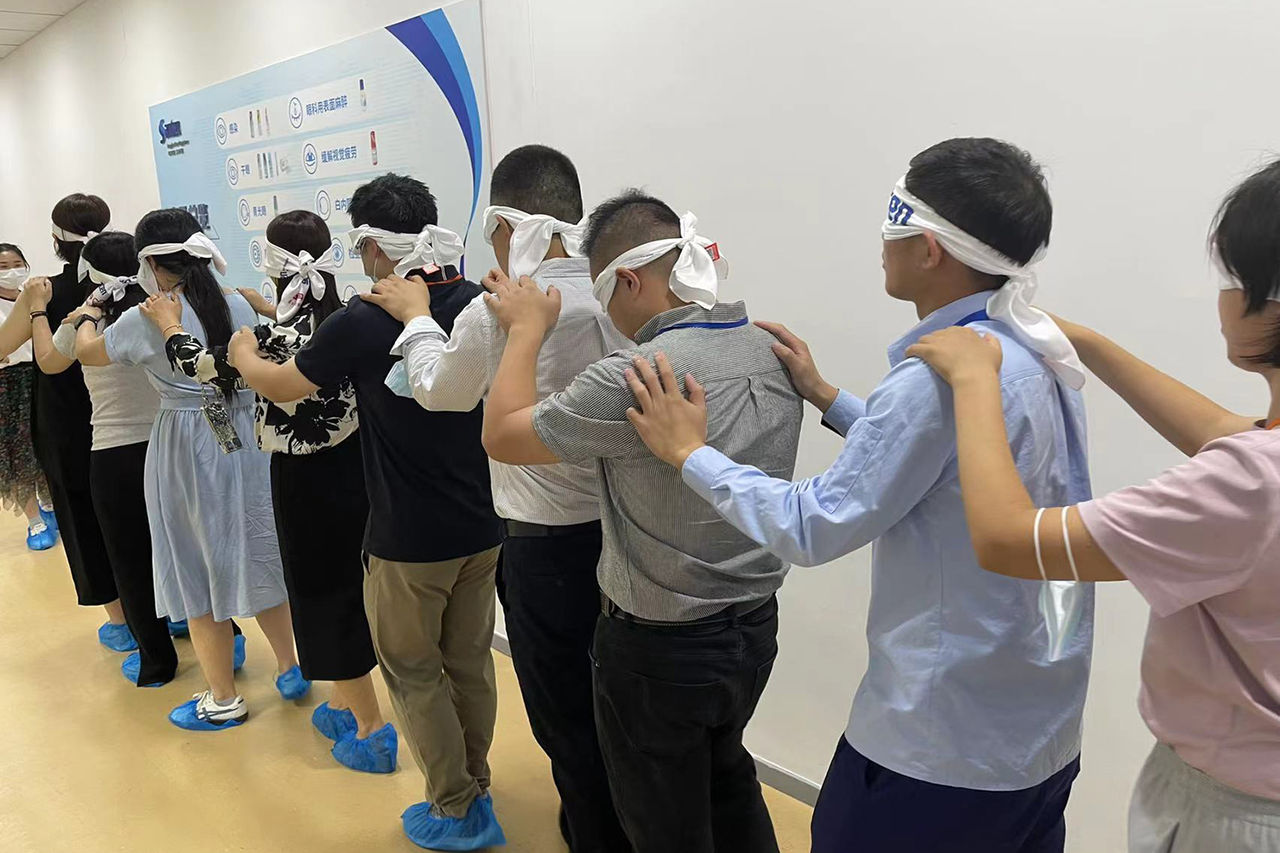
Employees talk about “Happiness with Vision” with their children
The first company family event was held. We had a wonderful time talking about “Happiness with Vision” with employees and their children. They talked about “What is vision?” “What does your vision bring to your life?” and “What are the lives of people with visual impairment like?” This event was not only educational for the children but also provided fresh insights for employees.
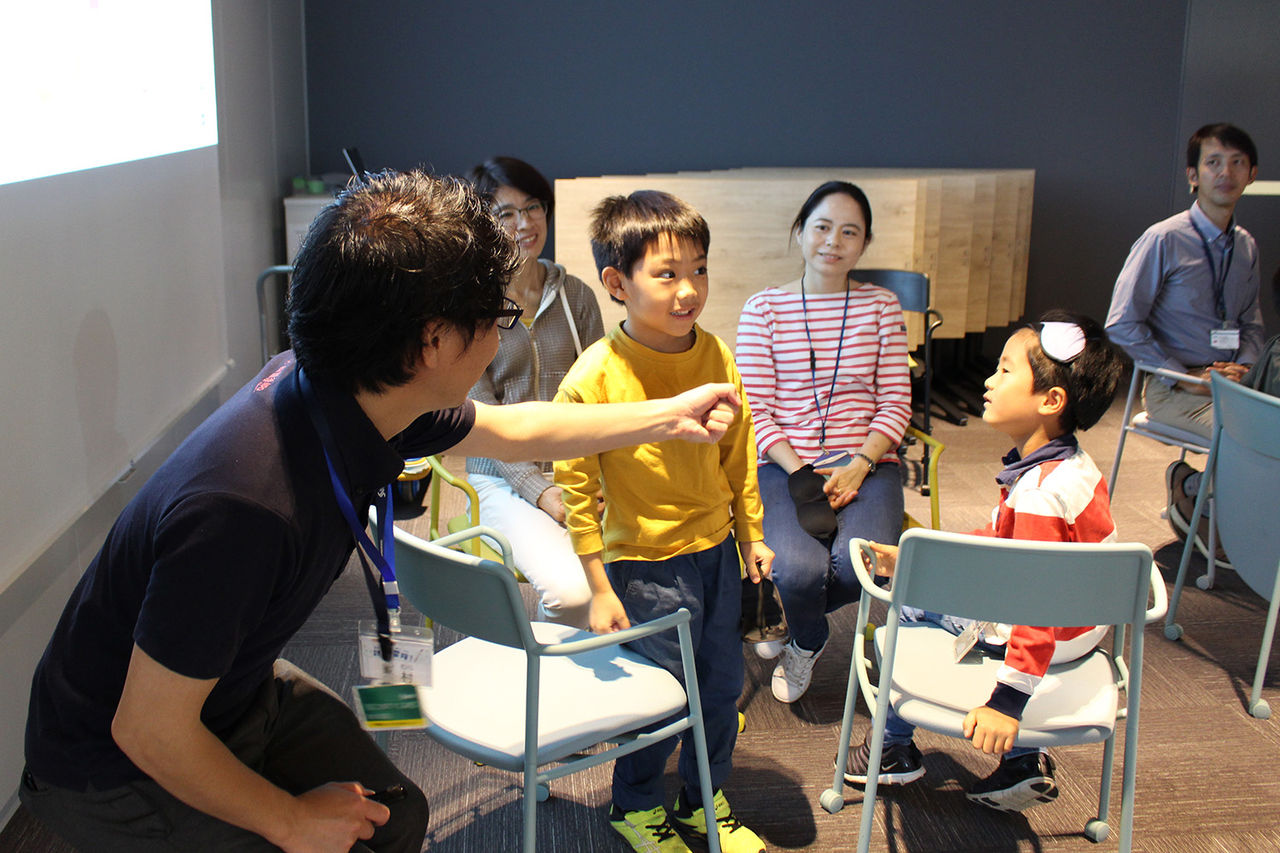
Opportunity to think about vision
Blind Football Kids Camps, held by the Japan Blind Football Association (JBFA), are two-day sports camps targeted at visually impaired children. During each camp, many Santen employees serve as supporters of the participating children and foster patient-centered and people-centered perspectives in themselves through interaction with those children and their parents. This program has enabled participants from Santen to discover that visually impaired people differ in terms of how they can see, and to listen carefully to the parents of the participating children sharing the difficulties they face and their concerns, thereby helping those employees gradually understand the perspectives of patients and those close to them.
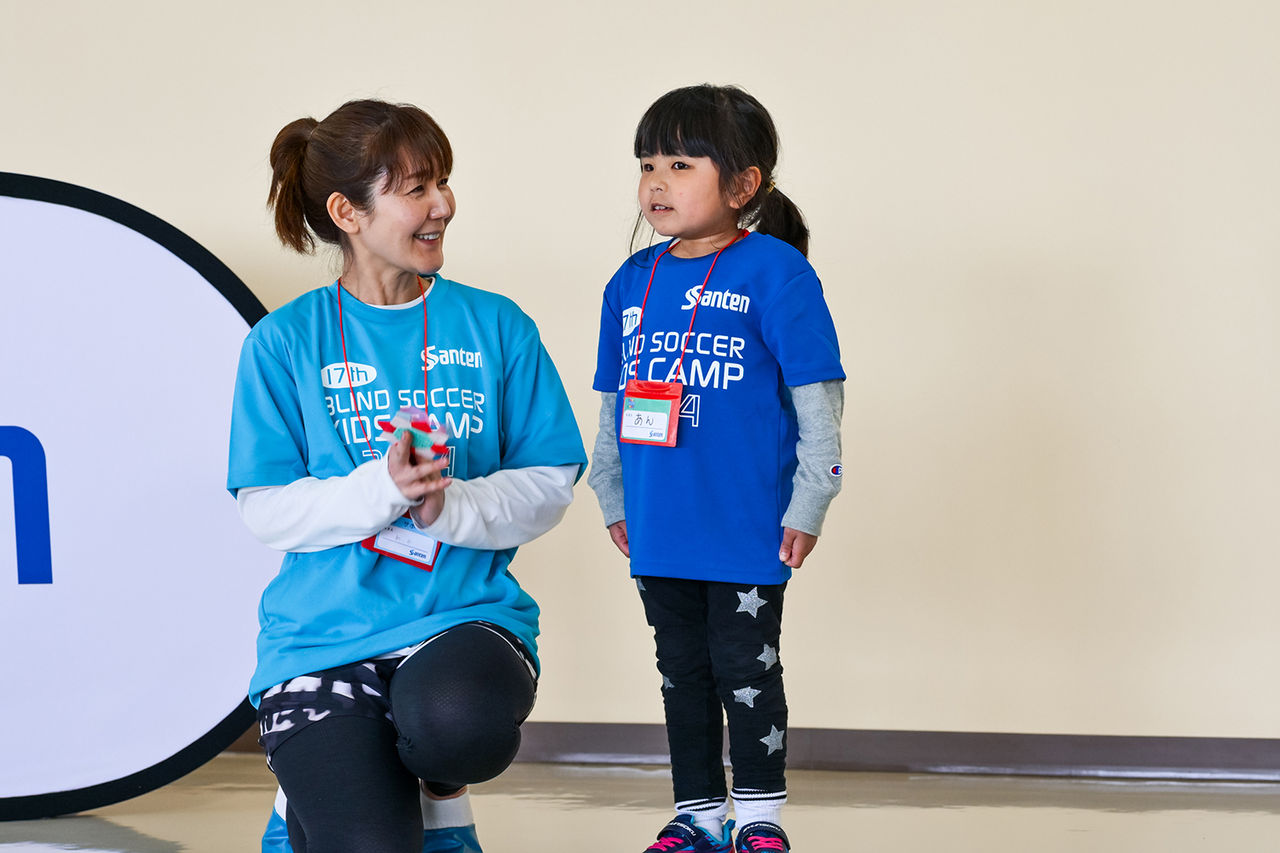
Activities of Visually Impaired Employees
We have visually impaired employees working in several departments of our company. We are also engaged in educational activities for the visually impaired both internally and externally, utilizing the perspectives of those who are visually impaired.
We interviewed visually impaired employees of Santen.
Employee as Symposiast at Ophthalmology Congress
As recognition of Santen's efforts spread, Mohamed Abdin, our colleague, was nominated as one of the distinguished symposiasts to speak at the 2023 Congress of the Japan Society of Clinical Ophthalmology, one of the two major ophthalmology societies in Japan, in the conference management program. Abdin made a proposal on the issue of employment for the visually impaired who lost their sight in the middle of their lives.
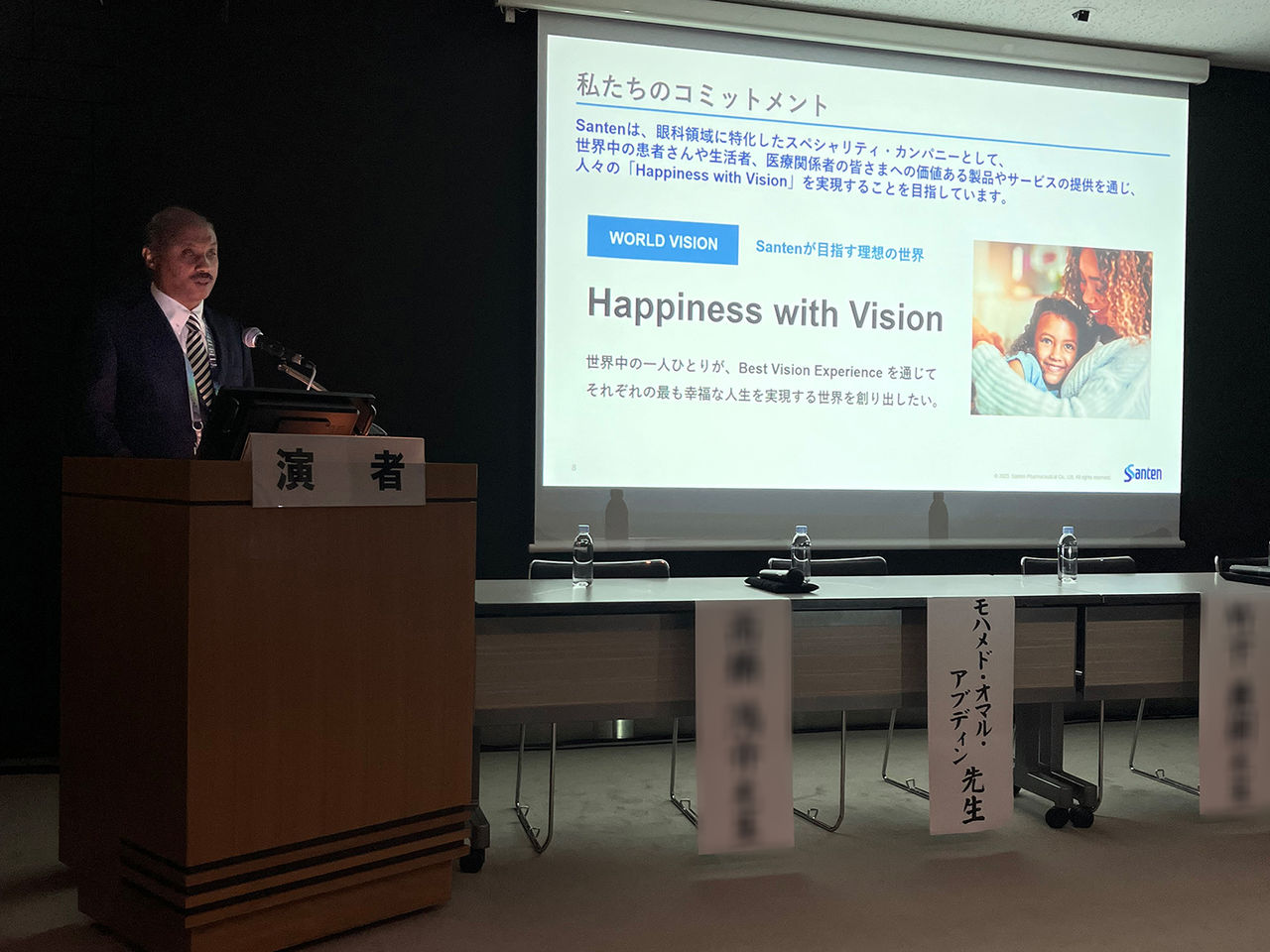
Interview of visually impaired employee at Santen
At internal and external training sessions, participants are asked to wear eye masks and block out their vision to have a "Blind Experience."
What value do you think BLIND EXPERIENCE sessions can offer to the participants?
Torii:
I believe that I have been able to give the participants a surprise or discovery by actively sharing with them what I can do naturally. Many people are indifferent to or ignorant about I believe that I have been able to give the participants a surprise or discovery by actively sharing with them what I can do naturally. Many people are indifferent to or ignorant about disabilities and impairments. The first step they should take is to learn about disabilities and impairments. I believe this is a massive step toward reducing the psychological barrier between people with and without disabilities or impairments.
Do you have any particular message to the participants to reduce this psychological barrier?
Torii:
I keep in mind to say to the participants that even blind people can do many things and are making daily efforts and devising effective ways to become able to do what they cannot do now. I believe that my attempts to have the participants understand that there is no difference between people regardless of whether or not they have disabilities or impairments, and to interact with them while viewing blindness as a kind of individual characteristic, have provided the participants with a discovery or surprise.
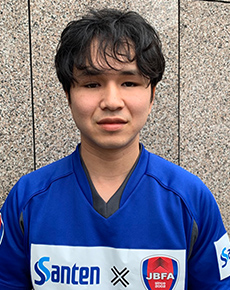
Kento Torii
In charge of Core Principle and CSV planning (global), also contributes to corporate branding by utilizing his experience as a representative of the Japan blind football team.
Finally, what kind of society do you want to achieve?
Torii:
Some day, I want to build a society where there is no concept of "disability" or "impairment," and all people can enjoy their own lives by helping each other. I believe that building such a society requires we-the visually impaired-to begin by having the opportunity to express ourselves to other people and share our experience with them.